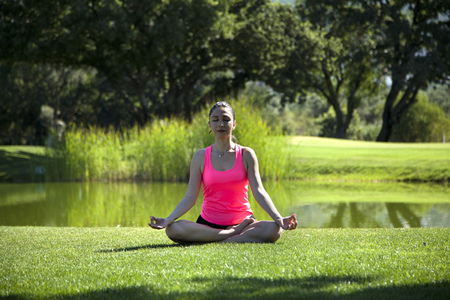Introduction to Meditation in the UK
In recent years, meditation has steadily gained traction across the United Kingdom, becoming a notable part of everyday life for many. The British public’s attitude towards wellness and mindfulness has evolved, with increasing numbers embracing meditation not just as a spiritual pursuit but as a practical tool for managing stress and improving mental health. Traditionally known for their reserved nature, Britons are now more open to discussing emotional wellbeing and exploring techniques that foster inner calm. This cultural shift is reflected in workplaces offering mindfulness sessions, community centres hosting guided meditation classes, and the growing availability of meditation apps tailored to UK audiences. As mindfulness weaves itself into the fabric of British culture, it is clear that the approach to wellness here is pragmatic—focusing on evidence-based benefits while maintaining an understated, down-to-earth attitude. This article will explore some of the most popular meditation practices across the UK, examining how they resonate with local preferences and contribute to a broader sense of wellbeing.
2. Mindfulness Meditation: A Modern British Staple
Mindfulness meditation has become a defining feature of contemporary British wellness culture. Originally rooted in ancient Buddhist traditions, its adaptation for the modern world has been driven by robust scientific evidence and a growing focus on mental health across the UK. Today, mindfulness is not just a buzzword—it’s a practical tool recommended by healthcare professionals, embraced in offices, and woven into daily routines.
Scientific Support and NHS Recommendations
The National Health Service (NHS) actively endorses mindfulness-based interventions for managing stress, anxiety, and depression. This recommendation is underpinned by numerous studies from UK universities such as Oxford and University College London, which demonstrate how regular mindfulness practice can positively impact mental wellbeing. The NHS offers free online resources and even referrals to Mindfulness-Based Cognitive Therapy (MBCT), reflecting its trust in this method’s efficacy.
Where Mindfulness Meditation Appears in British Life
| Setting | Integration of Mindfulness |
|---|---|
| Healthcare | NHS-recommended courses, mental health support groups, GP referrals |
| Workplaces | Lunch-hour sessions, stress reduction workshops, digital mindfulness platforms |
| Education | Pilots in primary and secondary schools, teacher training programmes |
| Everyday Life | Apps like Headspace and Calm, local community classes, home practice routines |
A Cultural Shift towards Everyday Mindfulness
The widespread embrace of mindfulness meditation signifies a broader cultural shift in Britain—one that values proactive self-care and emotional resilience. With the backing of respected institutions and an increasing presence in everyday scenarios—from London boardrooms to village halls—mindfulness has established itself as a staple practice across the UK. This integration reflects both the practical needs and progressive attitudes of modern British society.

3. Transcendental Meditation and Its UK Enthusiasts
Transcendental Meditation, often abbreviated to TM, has gained a dedicated following in the UK over recent decades. Unlike mindfulness or breath-focused techniques, TM is characterised by the silent repetition of a specific mantra, a practice designed to settle the mind into a state of restful alertness. The approach is both simple and accessible, requiring no particular belief system or complex rituals, making it especially appealing to a broad British audience seeking practical wellbeing solutions.
The Spread of TM across Britain
TM first arrived in the UK during the cultural shifts of the late 1960s and 70s, finding initial popularity among artists, academics, and those interested in personal development. Today, its reach has extended far beyond these circles. Local TM centres have sprung up in cities such as London, Manchester, and Edinburgh, offering structured courses led by certified instructors. This growth reflects a wider British openness to exploring alternative approaches to stress reduction and mental clarity.
Distinctive Techniques of Transcendental Meditation
At its core, TM involves sitting comfortably with eyes closed for twenty minutes twice daily while silently repeating a personalised mantra. The technique is intentionally effortless; practitioners are encouraged not to force concentration but rather allow thoughts to come and go naturally. This hands-off approach contrasts with more directive forms of meditation, which may involve guided imagery or breath counting. British TM advocates often cite the technique’s ease and adaptability as key reasons for their sustained practice.
Stories from British Practitioners
The UK’s TM community includes people from all walks of life—from university students managing exam stress to retirees seeking greater peace in daily living. Take Sarah from Bristol, who reports that after just a few months of regular practice she noticed significant improvements in her mood and sleep quality. Likewise, James from Glasgow credits TM with helping him cope with workplace pressures without resorting to medication. These stories echo throughout online forums and local meetups, where practitioners share experiences and encourage newcomers to explore this uniquely gentle method.
In summary, Transcendental Meditation has firmly established itself within the UK’s diverse meditation landscape. Its simplicity and inclusiveness resonate strongly with British values of practicality and personal autonomy, ensuring its continued relevance for those searching for effective ways to manage modern life’s challenges.
4. Yoga and Breathwork: Connecting Body and Mind
Across the UK, yoga and breathwork meditation have taken root not only in specialist studios but also in community centres, church halls, and even local parks. These practices are increasingly seen as accessible entry points for meditation, with a focus on uniting physical movement and mindful breathing. The British approach often emphasises inclusivity, practical benefits, and community over rigid tradition.
In many towns and cities, early morning yoga sessions in public parks have become a staple of the British wellness calendar, especially during the summer months. Meanwhile, breathwork classes—once considered niche—are now regularly featured alongside traditional yoga in local leisure centres. These sessions often blend classic yogic techniques with distinctly British sensibilities: group tea breaks after class, integration with local charity initiatives, or adaptations for rainy weather using indoor spaces.
| Setting | Typical Practice | British Adaptation |
|---|---|---|
| Yoga Studios | Vinyasa Flow, Hatha Yoga, Pranayama | Beginner-friendly classes; drop-in sessions; focus on stress relief for busy urbanites |
| Community Centres | Gentle Yoga, Chair Yoga, Guided Breathwork | Accessible to all ages; subsidised fees; partnerships with NHS wellness schemes |
| Parks & Outdoor Spaces | Sun Salutations, Walking Meditation, Outdoor Breathwork Circles | Weather-adapted sessions; social elements like post-practice picnics or coffee gatherings |
The rise of these practices reflects a uniquely British fusion of ancient wisdom and modern lifestyle needs. Practitioners are encouraged to adapt postures and breathwork techniques to suit their own bodies and circumstances—a pragmatic approach that resonates with the UK’s emphasis on individuality and self-care. Whether joining a sunrise yoga group on Hampstead Heath or a lunchtime breathwork circle at the village hall, people across Britain are finding new ways to connect body and mind within their own communities.
5. Guided Meditation: Technology and Tradition
The landscape of guided meditation in the UK has evolved dramatically, shaped by both long-standing traditions and a wave of digital innovation. Historically, local meditation groups—often linked to community centres, faith organisations, or wellness studios—provided a personal touch through face-to-face guidance. These gatherings remain essential for many, fostering a sense of belonging and offering tailored support from experienced practitioners.
However, the rise of digital platforms has truly expanded access to guided meditation across the country. Mobile apps such as Headspace and Calm, both with significant British user bases, have made mindfulness available at the tap of a screen. These apps cater to busy lifestyles, with sessions ranging from two-minute breathing exercises to extended mindful journeys—ideal for commuters on the Tube or those seeking calm before bed. Podcasts by UK-based teachers and wellness experts also play a key role, delivering guided sessions that blend classic techniques with relatable, everyday language.
This fusion of tradition and technology is evident in how people practise today. It’s now common for individuals to supplement weekly group sessions with daily app-based meditations or to join online meetups facilitated by local instructors. Many British practitioners appreciate this hybrid approach, finding comfort in established methods while benefiting from the flexibility and variety offered by digital resources.
Ultimately, the UK’s guided meditation scene reflects a broader cultural openness: embracing innovation while maintaining respect for time-honoured practices. Whether tuning in via headphones or gathering in person at a village hall, people across the UK are discovering new ways to cultivate mindfulness—wherever they are on their journey.
6. Community and Silent Retreats
Across the UK, meditation retreats and silent gatherings have become increasingly accessible, providing both seasoned practitioners and newcomers with spaces to deepen their mindfulness away from daily distractions. From rural monasteries in the Scottish Highlands to pop-up retreats nestled in the heart of London, these experiences offer a unique opportunity for British meditators to step back from modern life. Many traditional Buddhist centres, such as Amaravati in Hertfordshire or Samye Ling in Dumfries and Galloway, invite participants for extended periods of silence and reflection. These retreats typically range from weekend stays to week-long immersions, focusing on guided meditation, mindful walking, and shared meals prepared in silence. The emphasis on community is strong, with retreatants often bonding over a shared commitment to inner calm and self-discovery.
Urban settings are also embracing the trend, with yoga studios and wellness collectives hosting day-long or overnight silent events. These city pop-ups cater to busy professionals seeking respite without having to travel far. The impact of such communal practices is widely reported among British meditators; participants frequently mention a heightened sense of connection—not just with fellow attendees, but also with themselves and the wider world. Silent retreats offer a counterpoint to Britain’s otherwise fast-paced culture, encouraging self-compassion and mindful living that persists long after the event ends.
7. Conclusion: The Future of Meditation in the UK
As we reflect on the evolving landscape of meditation techniques across the UK, it is clear that the nation’s relationship with mindfulness and meditative practice is experiencing a dynamic transformation. British society, historically known for its reserved nature, has increasingly embraced diverse meditation traditions—from time-honoured mindfulness and breathwork to modern innovations such as guided visualisation and app-based practices. This integration is not just evident in wellness studios or yoga centres but is also making its way into workplaces, schools, and even NHS-supported wellbeing programmes. The future of meditation in Britain seems promising; as awareness grows, so too does a collective openness to blending global traditions with distinctly British sensibilities. People are not only seeking calm and focus but are also fostering community, resilience, and mental health through regular practice. As meditation continues to adapt to local culture—whether through outdoor group sessions in city parks, online communities, or workplace initiatives—it will likely remain a vital tool for navigating the complexities of modern British life. In summary, the ongoing evolution of meditation in the UK signals both a respect for tradition and an eagerness to experiment, ensuring these diverse practices will play an enduring role in the everyday lives of people across the country.


